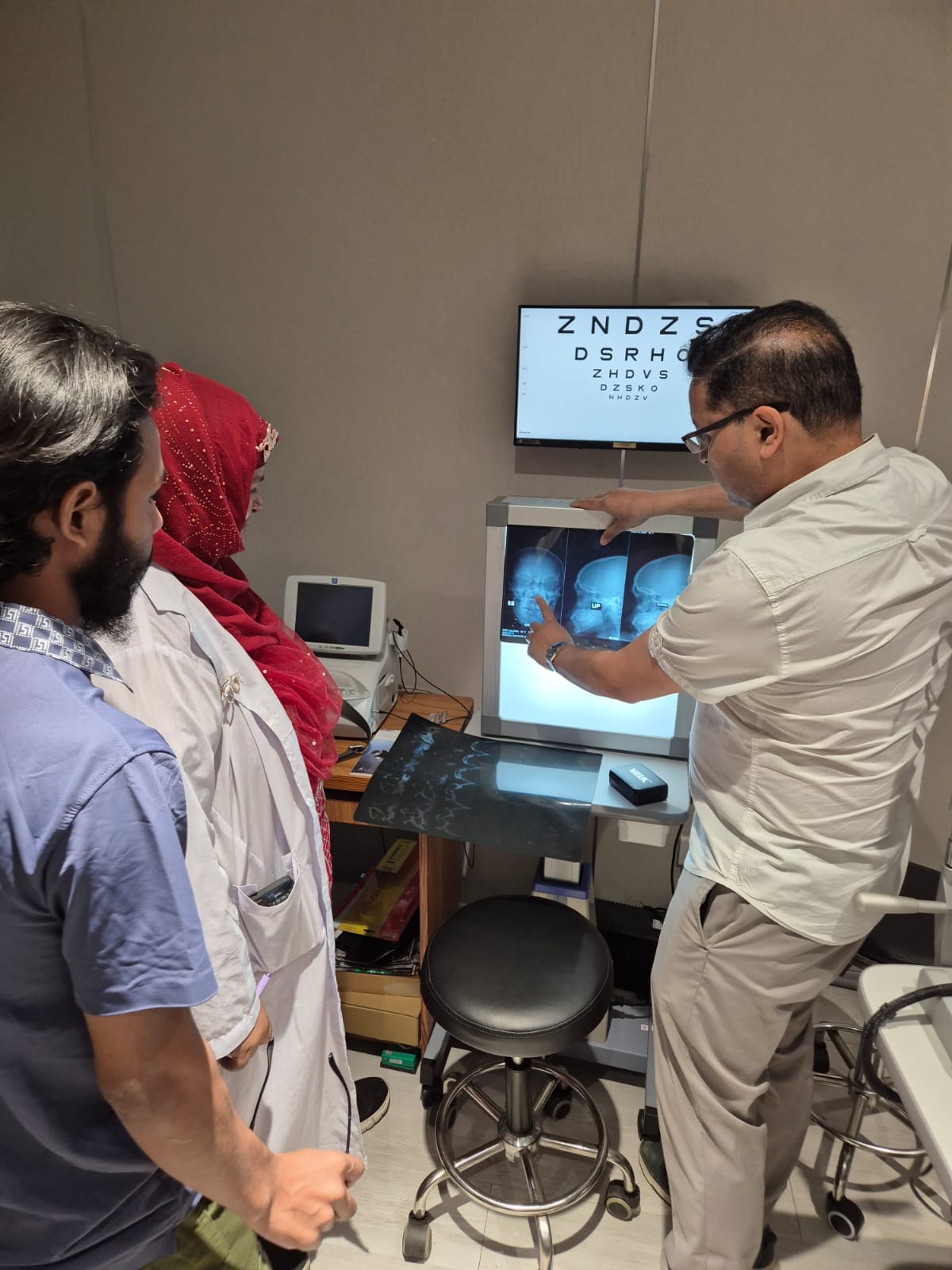Specialist UK surgeons save sight of Bangladeshi students injured in protests
Two consultants from Moorfields Eye Hospital in London were invited to the country by its interim government.

Surgeons from a specialist UK eye hospital have helped save the sight of more than 20 Bangladeshi students who were wounded in last summer’s protests in the country.
Mahi Muqit and Niaz Islam, consultant ophthalmologists at Moorfields Eye Hospital in London, operated on more than 100 patients during the visit to Dhaka last month.
The pair evaluated 150 patients aged between 14 and 30 following the invite by Bangladesh’s interim government.
All patients had suffered bullet injuries to the eyes after taking part in protests organised by Students Against Discrimination in July, with the majority receiving initial treatment last year.
The specialist surgeons then operated on 24 patients over two days to save their sight.
Those who did not have surgery were given a rehabilitation plan which was agreed with local doctors.
Mr Muqit, a senior vitreoretinal consultant at Moorfields, said: “It was an honour to be invited to help these people, and an intense experience for all of us.
“It’s such a privilege to be able to restore sight to people who have lived with sight loss for months.”
Speaking of one patient named Rohan, who was operated on during the visit, Mr Muqit added: “He was with friends when he was shot in both eyes by the police.
“He was blinded in both eyes, with one being beyond hope. Our operation on the other eye fixed his retinal detachment and removed scar tissue.
“We have every expectation that his vision will continue to improve as he recovers from the surgery.

Another patient named Romel had also lost his vision, according to Mr Muqit: “His surgery also repaired a retinal detachment after bullet trauma, and he was also very pleased to hear that his vision will slowly improve.”
The specialists also discovered that one 20-year-old patient, named Minhaj, still had the original bullets inside his eye from last July.
He required complex surgery to remove them and repair the damage.
An estimated 1,000 people suffered some form of eye trauma during the demonstrations in July 2024.
Around 700 having emergency care from medics at the National Institute of Ophthalmology and Hospital (NIOH) in Dhaka.
The Moorfields specialists also provided medical and surgical training to local doctors to bolster treatment services at NIOH.
Mr Islam, a senior medical retina expert at Moorfields, added: “I was delighted to be able to share our expertise and experience with colleagues at NIOH – we hope our legacy lies in having transferred skills to them, so they can in turn offer sight-saving surgery to many others affected by eye trauma in Bangladesh.”





